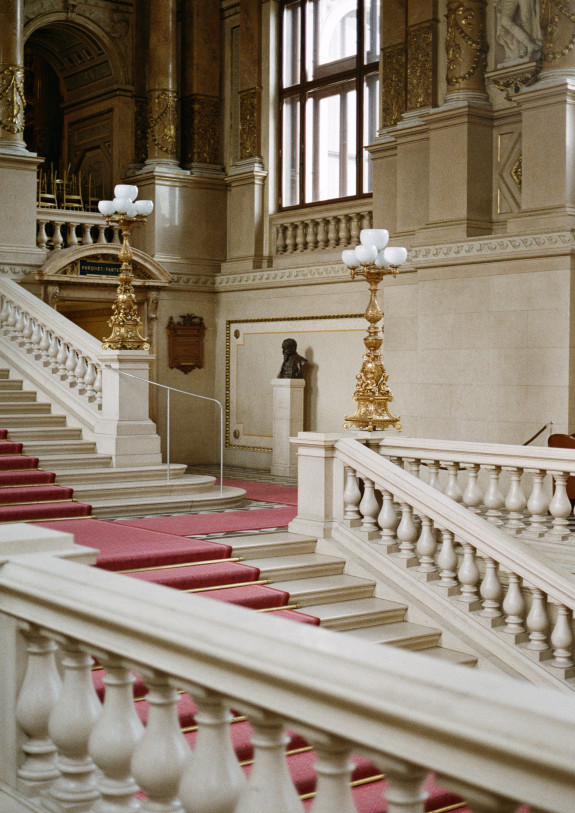Venues
About the Burgtheater and its stages

In 1776, when Joseph II declared that the theatre we know today as the Burgtheater would be renamed Teutsches Nationaltheater, this marked the beginning of its German-language focus. The royal decree was a step towards strengthening the national language and represented an act of resistance against the predominance of French and Italian in theatres – languages that were only spoken and understood by an elite section of the population.
The strong link between language and national identity continued to shape the Burgtheater in the time thereafter.
With Vienna being a world metropolis today, multilingualism is taken for granted as one of its cultural features for entirely different reasons. For many city dwellers, cosmopolitanism is an integral part of their biographies: engendered by social and economic conditions, facilitated by infrastructures, fuelled by the media, and personally experienced on a day-to-day basis. Languages have always been pliable and fluid when reacting to social changes, have integrated them, opposed them and advanced them. What is true for all languages is especially true for the languages of art.
"We are just a speck,
on a speck, orbiting
a speck, in the corner
of a speck, in the
middle of nowhere."
― Bill Nye
The Burgtheater is a place of art and artists – no matter how they describe their background. It will present new languages and old languages in new registers, and occasionally even create new languages. It will be a space for a lively artistic exchange with mindsets and forms of expression beyond our inner and outer borders and limitations. It will be a space of extremes – extremely controversial, extremely varied, extremely urgent, extremely contemporary, extremely loud, extremely quiet, extremely Austrian, extremely international. And the entire spectrum of society is invited to enter this space.
From now on, the Burgtheater will no longer see itself as a “teutsches Nationaltheater” that only speaks in one tongue and only hears with one ear. It will never stop reflecting on itself and the languages that are spoken within and all around its walls. And it will never stop evolving. Full stop.